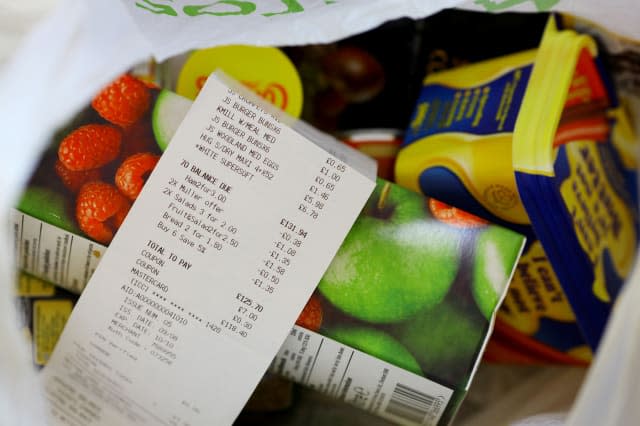Enjoy deflation while it lasts

So deflation, the dreaded D-word, has finally struck. Analysts have feared this moment for years, and now it is upon us.
Falling prices are not as much fun as they sound, they warn, because it can quickly plunge economies into a deflationary vortex.
It makes little sense to buy something today when it will be cheaper tomorrow. So people defer spending, sales fall, companies lay off workers and sales fall again because people have lost their jobs. And so on.
All of which is dismal news for corporate health and stock markets.
And that's where we're at.
Happy Days
Or rather, not. Because this doesn't look like the nasty, entrenched Japanese-style deflation that has run on for more than two lost decades, but something else.
This is good deflation. Happy deflation.
Happy deflation occurs when falling prices make people feel richer, by increasing the value of their wages in real terms.
And with prices falling 0.1% in the year to April while regular wages have risen 2.2%, people do feel better off.
Food prices are down 3% and petrol 12% over the last year. Happily, these are everyday essentials. People can't delay buying food or filling their motor because they reckon it will be cheaper next month.
The supermarket price has been bad news for investors in Tesco, J Sainsbury and WM Morrison, but it is good news for almost everybody else.
Motley Fuel
The deflationary shift has also wreaked havoc onthe oil majors, with the BP share price down 11% over the past 12 months, and Royal Dutch Shell down 21%.
And it has spelt doom for FTSE 100-listed mining giants BHP Billiton and Rio Tinto, falling 21% and 10% respectively.
These sectors still face a struggle because with China rapidly slowing, supply may continue to outstrip demand.
Spring Break
But a brief spell of UK deflation could act as a tailwind for the UK economy.
It will help offset the headwinds from Chancellor George Osborne's emergency budget in July, which is expected to slash spending and benefits.
And it will head off the threat of interest rate hikes, with the Bank of England not expected to act until at least next summer.
This deflation isn't built to last. From July, falling fuel and food costs will start sliding out of the annual comparison.
Some claim CPI could be at 3% by the end of the year, although that seems too high to me.
Joy Is Fleeting
Cheap food, more affordable energy and rock bottom mortgage rates are combining to put more money into people's pockets.
Given most people's knife-edge budgets, most of this will flush straight into the economy, which should be good news for stock markets.
Enjoy happy deflation while it lasts. And pray it doesn't last too long.
Real terms wage growth is already feeding through to the retail sector, as people have the money to go shopping.
This could make now is the ideal time to consider investing in what Motley Fool analysts have singled out as one stock poised for global domination.
This company looks ready to explode, with its sales on course to triple in the next five years.
Full details of this exciting buying opportunity are available in a brand-new report 3 Hidden Factors Behind This Daring E-commerce Play.
To find out more for free, click here now.
The Motley Fool owns shares in Tesco.
Read more on AOL Money
Britain is in deflation, what does it mean for you?
Eight items for less: what will be cheaper this year?
Customers returning to the corner shop




